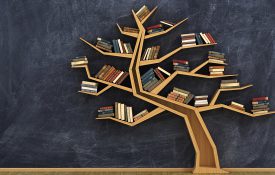-
Low Self-Control Promotes Selfless Behavior in Close Relationships
When faced with the choice of sacrificing time and energy for a loved one or taking the self-centered route, people’s first impulse is to think of others, according to new research published in Psychological Science, a journal of the Association for Psychological Science. “For decades psychologists have assumed that the first impulse is selfish and that it takes self-control to behave in a pro-social manner,” says lead researcher Francesca Righetti of VU University Amsterdam in the Netherlands.
-
People Prefer ‘Carrots’ to ‘Sticks’ When It Comes to Healthcare Incentives
To keep costs low, companies often incentivize healthy lifestyles. Now, new research suggests that how these incentives are framed -- as benefits for healthy-weight people or penalties for overweight people -- makes a big difference. The research, published in Psychological Science, a journal of the Association for Psychological Science, shows that policies that carry higher premiums for overweight individuals are perceived as punishing and stigmatizing. Researcher David Tannenbaum of the Anderson School of Management at the University of California, Los Angeles wanted to investigate how framing healthcare incentives might influence people’s attitudes toward the incentives.
-
APS 2013 Mentor Award: Michael T. Turvey
Michael T. Turvey, University of Connecticut, is best known for his pioneering work in ecological psychology and for applying a dynamic systems approach to the study of motor behavior. Elke U. Weber, Columbia University, presents Turvey with a 2013 Inaugural Mentor Award at the 25th APS Annual Convention in Washington, DC. The Mentor Award is a lifetime achievement award to recognizing those who have significantly fostered the careers of others, honoring APS members who masterfully help students and others find their own voice and discover their own research and career goals.
-

Kids’ Reading Success Boosted by Long-Term Individualized Instruction
Students who consistently receive individualized reading instruction from first through third grade become better readers than those who don’t, researchers find.
-
Physical Environment May Affect Likelihood of Dishonest Behavior
New research shows that expansive physical settings -- such as having a big desk to stretch out while doing work or a large driver's seat in an automobile -- can cause individuals to feel more powerful, which may, in turn, elicit more dishonest behavior, such as stealing, cheating, and even traffic violations. The new research is forthcoming in Psychological Science, a journal of the Association for Psychological Science.
-
Failure to Replicate the Mehta and Zhu (2009) Color Effect
Mehta and Zhu (2009) reported several studies in Science on the effects of the colors red and blue over a series of cognitive tasks. Red was hypothesized to induce a state of avoidance motivation which would cause people to become more vigilant and risk-averse in a task. Blue was hypothesized to induce a state of approach motivation which would cause people to use more innovative or risky strategies. Studies appear in high-impact journals, like Science, often because they report novel or far-reaching effects. Such studies need to be replicated in order to determine whether the finding is reliable.

